Antoine Demoitie: Belgian rider dies after Gent-Wevelgem accident
- Published
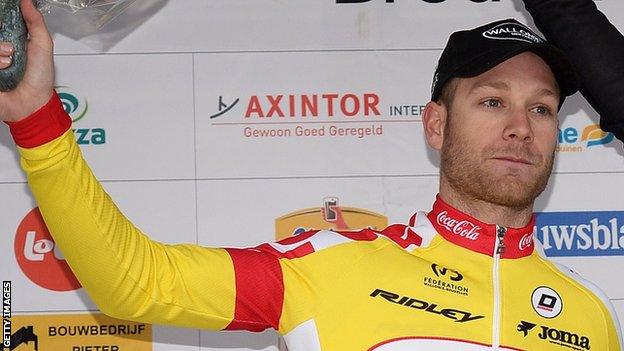
Antoine Demoitie joined the Wanty-Gobert team in early 2016 after three seasons at Walonnie-Bruxelles
Belgian cyclist Antoine Demoitie has died after a collision with a motorbike during Belgium's Gent-Wevelgem race.
The 25-year-old was hit by the motorbike after several riders came down in a crash as the race passed through northern France.
Demoitie, who was riding for the Wanty-Gobert team, was taken to hospital in Lille but died some time later.


Two-time Tour de France winner Chris Froome and former world road race champion Mark Cavendish expressed their sympathy via Twitter
"An inquiry is under way to determine the circumstances," said Frederic Evrard, a French police spokesman.
The sport's governing body, the UCI, said it would co-operate with all relevant authorities in an investigation into the incident.
UCI president Brian Cookson said: "Antoine will be truly missed. Our thoughts are with his family, friends and team."
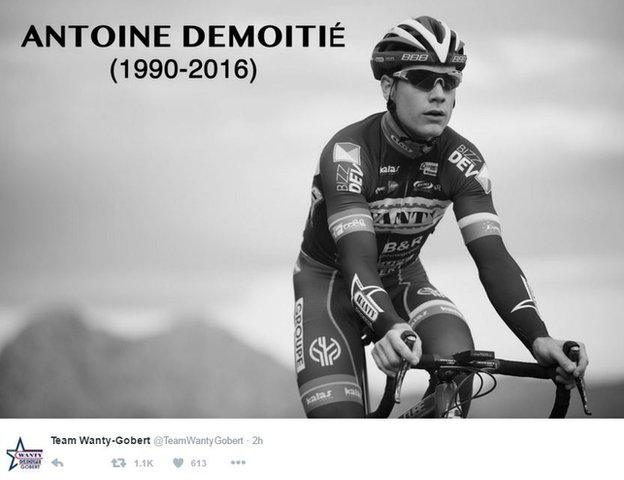
On Monday, Demoitie's team, Wanty-Gobert, tweeted this image of the rider
Wanty-Gobert posted on Twitter while he was still in a critical condition to say his wife and family were at his side, and once his death was announced added a simple black-and-white image. The team later thanked people, external for their "overwhelming support".
The Professional Cyclists' Association (CPA), external issued a statement asking what would be done to improve safety.
President Gianni Bugno, a former rider, said: "We do not want to make controversy but we have so much frustration inside.
"I do not want to accuse anyone, but make everyone reflect on the responsibility we have to ensure... a very high level of attention, awareness, and control over safety standards during each race."
Etixx-Quickstep rider Dan Martin tweeted, external motorbikes were a "necessity" but added their "conduct and direction needs governance".
Tinkoff rider Michael Rogers replied,, external asking if a rule capping the speed of motorbikes would work.
In a separate incident, former Belgian national champion Jens Debusschere was taken to hospital after he was concussed in a heavy crash.
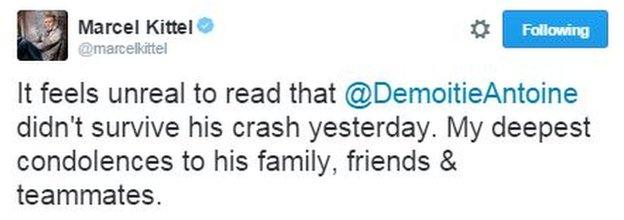

German rider Marcel Kittel and Welsh double Olympic gold medallist Geraint Thomas paid their tributes
Sunday's 243km race was won by Peter Sagan of Slovakia, who held off Sep Vanmarcke, Vyacheslav Kuznetsov and Fabian Cancellara to take victory.
Dutch rider Chantal Blaak won the women's race by 84 seconds after riding clear from a breakaway group with 10km remaining.
Lizzie Armitstead was the first Briton to cross the line, two minutes 23 seconds behind her Boels Dolmans Cycling Team colleague.
Other recent cycle-motorbike collisions
2016 Kuurne-Brussels-Kuurne: Lotto-Soudal's Stig Broeckx is struck by a medical motorcycle and abandons the race with a broken collarbone and rib.
2015 Vuelta a Espana: Tinkoff-Saxo rider Peter Sagan, external has to withdraw and team-mate Sergio Paulinho needs 17 stitches after both are struck by motorbikes.
2015 Clasica San Sebastian: Greg van Avermaet of BMC Racing is leading when he is hit by a motorbike and has to withdraw.
2015 Tour de France: Jakob Fuglsang of Astana is knocked off by a motorbike.
BBC Sport's Matt Slater
"In the immediate aftermath of a tragedy, thoughts of condolence must be paramount. Antoine Demoitie's death has shocked everybody connected with the sport but shock is nothing compared to the appalling loss those who really knew and loved him will be feeling.
"But once the initial reaction subsides, the wider cycling family must address how this happened and, if it is really honest with itself, admit this is a tragedy foretold.
"Simply put, bike races are now far more crowded than ever: there are cameramen on motorbikes, photographers on motorbikes, sponsors and VIPs in cars, mechanics on motorbikes, team cars, police motorbikes and sometimes up to 200 riders fighting for road space.
"Cycling is going through a purple patch in terms of participation but the economics of professional cycling remain precarious. Race organisers and teams depend on the exposure they get from television, which means more cameras, closer to the action. Without a compelling TV product, there are no bidding contests to host events, sponsors for teams, shop windows for manufacturers, role models for new fans.
"But without safe conditions to race, there are no riders, there is no sport. Cycling must find its balance."
- Published27 March 2016
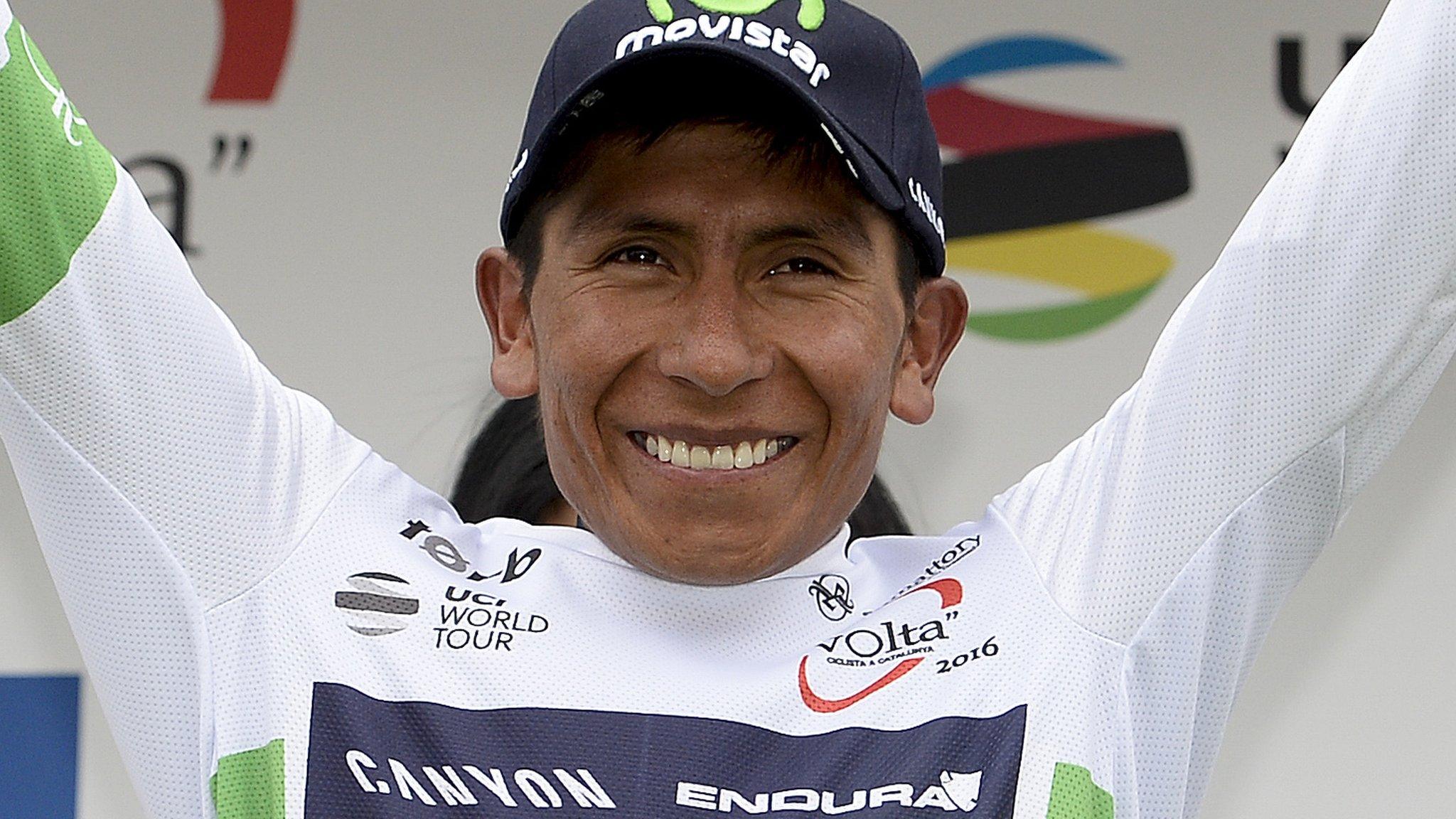
- Published25 March 2016
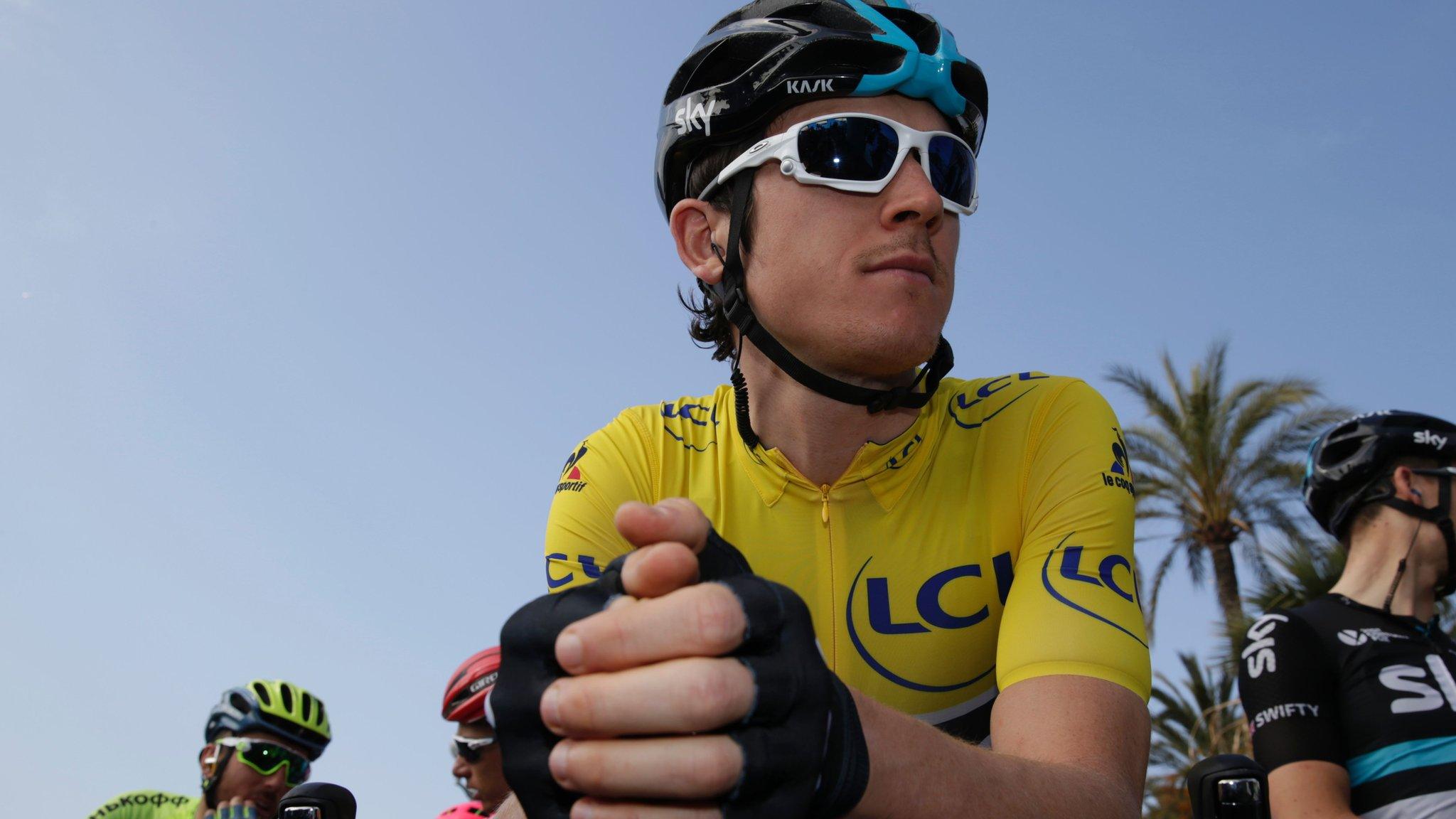
- Published25 March 2016
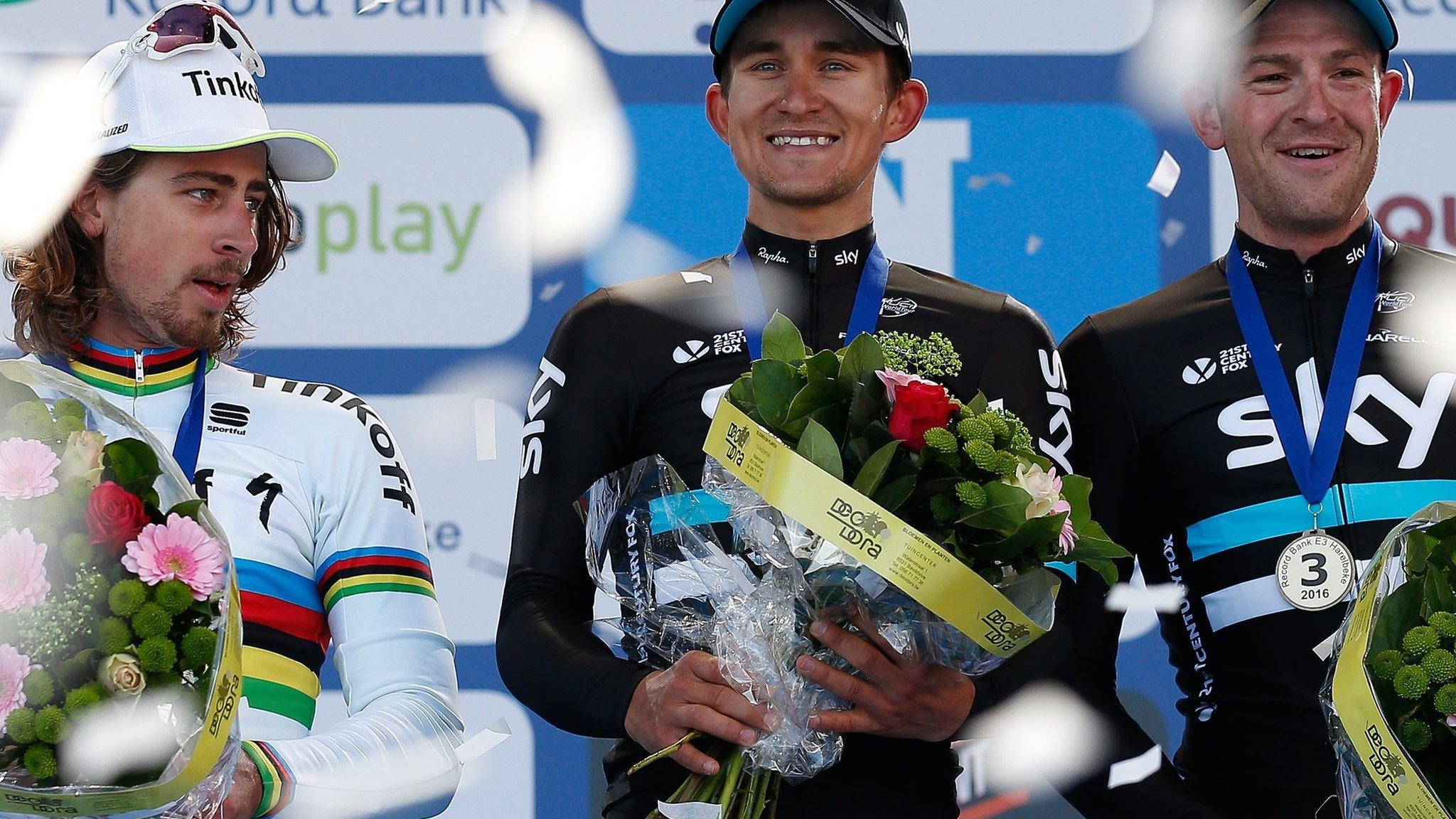
- Published19 July 2016
